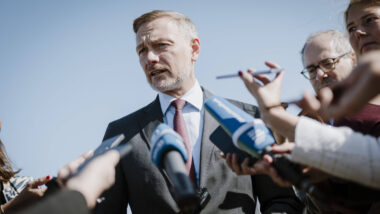Donna Wentworth gibt auf Copyfight einen Überblick, was diese Woche beim WIPO Developing Meeting in Genf passiert ist:
Cory Doctorow @ BoingBoing: „A group of over a dozen poor nations (the ‚Friends of Development‘) have presented a long, substantive proposal about how to reform IP in poor nations to encourage development. The US and other rich countries have come back with the ridiculous proposal that the way to help developing nations is to assign them ‚buddies‘ from the developed world who will lend assistance in writing American-style copyright and patent laws in poor countries where they can barely afford to feed and shelter their citizens.
The developing nations are aggressively calling bullshit on this.“
Ren Bucholz @ Deep Links (where EFF has been posting rough transcripts of the proceedings: Day 1; Day 2): „We won big this week. First, there is a genuinely substantive policy discussion going on within WIPO about its obligations to be more than an IP-factory and instead explore its capacity as a positive force for the social and economic development of its member states. Not only was the majority of the meeting spent discussing the excellent Friends of Development proposal, but the good guys secured two more meetings to focus on reforming WIPO, defeating those who wanted to limit the process to a single additional meeting. Second, WIPO agreed to open the next two events to the 17 non-accredited non-government organizations (NGOs) that fought hard to attend this first meeting.“South-North development monitor, SUNS: „Another highlight was a presentation by India, another major proponent of the Development Agenda. …India said that much more needs to be done in WIPO to meet development challenges. In WIPO’s terminology, ‚development‘ means increasing a developing country’s capacity to provide protection to IPR owners. This is quite the opposite of what developing countries understand when they refer to the ‚development dimension.‘ It added that the FOD paper corrects this misconception, that the development dimension means technical assistance.
India said that the real development imperative is ensuring that the interest of IP owners is not secured at the expense of the users of IP, of consumers at large and of public policy in general. The proposal therefore seeks to incorporate into international IP law and practice what developing countries have been demanding since the TRIPS agreement was foisted on them in 1994.“
William New @ IP Watch: „Private and non-profit sector representatives generally lined up on either side of debate between developed and developing countries undertaken in an inter-sessional intergovernmental meeting (IIM) this week. …A wide range of civil society groups have joined developing countries in pushing for reform of WIPO’s treatment of development issues. …Industry representatives, meanwhile, generally support the notion in the US proposal that no fundamental transformation of WIPO is necessary. …One industry representative called the Friends of Development proposal a ‚distraction,‘ and industry groups generally appeared interested in preventing the Friends of Development proposal from gaining too much traction within WIPO.“
Bridges Weekly Trade News Digest : „[The] majority of developing country members, including the groups of African and Asian countries, expressed support for many of the issues raised in the FoD submissions, and stressed the importance of ensuring that the design and implementation of intellectual property rules take into account different countries‘ respective levels of development — that one size should not be made to fit all. „




0 Ergänzungen
Dieser Artikel ist älter als ein Jahr, daher sind die Ergänzungen geschlossen.